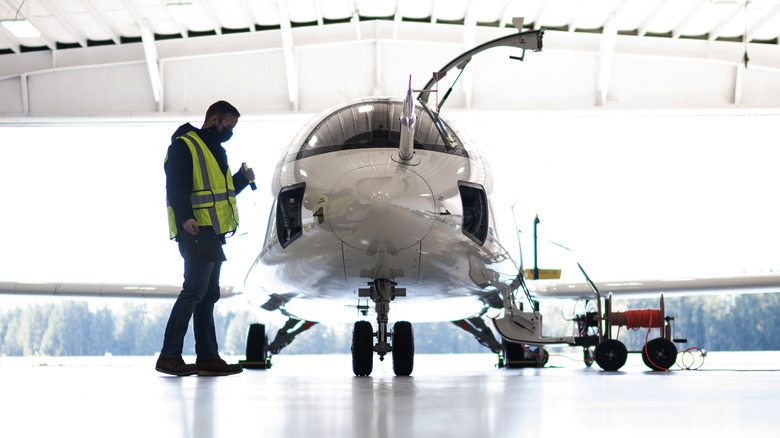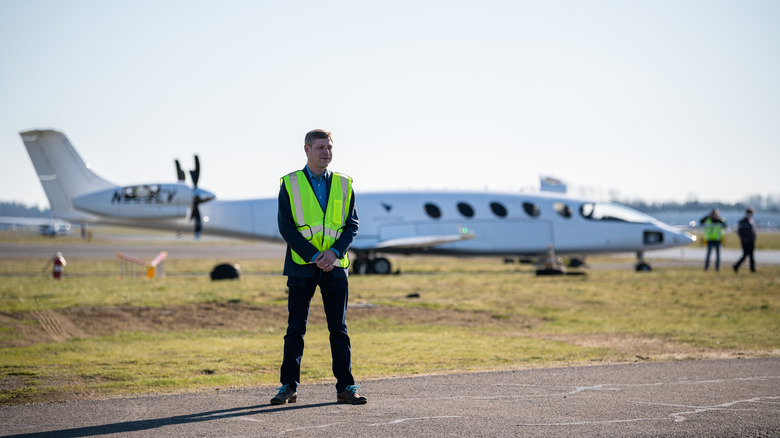Incredible Electric Plane Crosses A Major Milestone
In 2022, it is common to spot people going about their daily lives using electric vehicles. These vehicles typically range from buses and cars to battery-powered scooters and motorcycles. Given that electric vehicles have already proven their viability as excellent replacements for internal combustion engine vehicles, it was only a matter of time before someone thought of coming up with electric planes, as well. One of the primary reasons for the growing interest in electric planes is concerns over the environmental effects of the aviation industry, which as of 2018 accounted for 2.4% of all fossil fuel-derived CO2 emissions (via NIH).
With the number of people traveling by air expected to rise exponentially in the decades to come, developing an alternate, cleaner form of air travel is becoming vital. Interestingly, the concept of a battery-powered aircraft isn't entirely new, with the earliest records of such an aircraft concept dating back to the late 1880s. However, the major impediment to the development of such a plane was the battery, which simply could not hold the energy needed to power a reasonably long flight. The development of lithium-ion batteries in the '70s and '80s did solve this problem to some extent.
With significant investments from established players in the aviation industry, the development of electric planes is undoubtedly happening at a heightened pace these days. One of the companies working to develop an electric plane is Eviation, which recently completed a major milestone in the development of an all-electric aircraft called the Eviation Alice.
Eviation Alice: Everything you need to know
Designed for commercial use, the Eviation Alice is a small 57-foot-long all-electric aircraft focused on ultra short-haul flights. The aircraft was in the news after it passed a major test called the high-speed taxi rotation test. The next stage in the development of Alice is its first test fight, which is also expected to happen soon. The Eviation Alice team is targeting a range of 440 nautical miles (506 miles), according to the company's website, though a small disclaimer notes such a range would be without payloads and in ideal conditions.
The model can carry up to nine passengers and their luggage with reasonable comfort, and other cabin designs (such as for cargo) have also been teased by the company. The plane can also accommodate two pilots. What makes the Eviation Alice different from most of its peers is its rather slick design, which mimics the looks of a traditional aircraft.
Yesterday’s high speed taxi rotation test…nailed it. Up next: First Flight. pic.twitter.com/x5vh16iHuV
— Eviation Aircraft (@EviationAero) September 19, 2022
Like electric cars, the Eviation Alice comes powered by a massive array of lithium-ion batteries located at the belly of the plane. These batteries weigh up to 8,000 pounds and take up a significant amount of weight and space. To keep the weight of the aircraft down, Eviation used carbon composite materials to build it and fly-by-wire technology for controlling the aircraft, according to PopSci. Despite the seemingly advanced stage of development, the fact remains that Eviation Alice is still a couple of years away from its first commercial flight, though the first test flight is likely to happen later this year.

